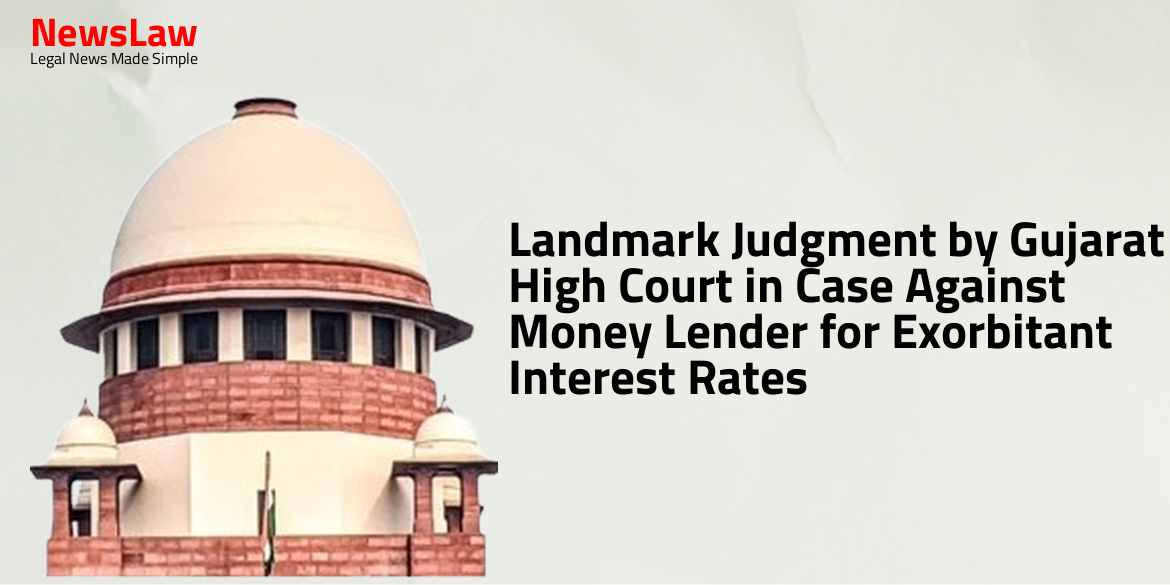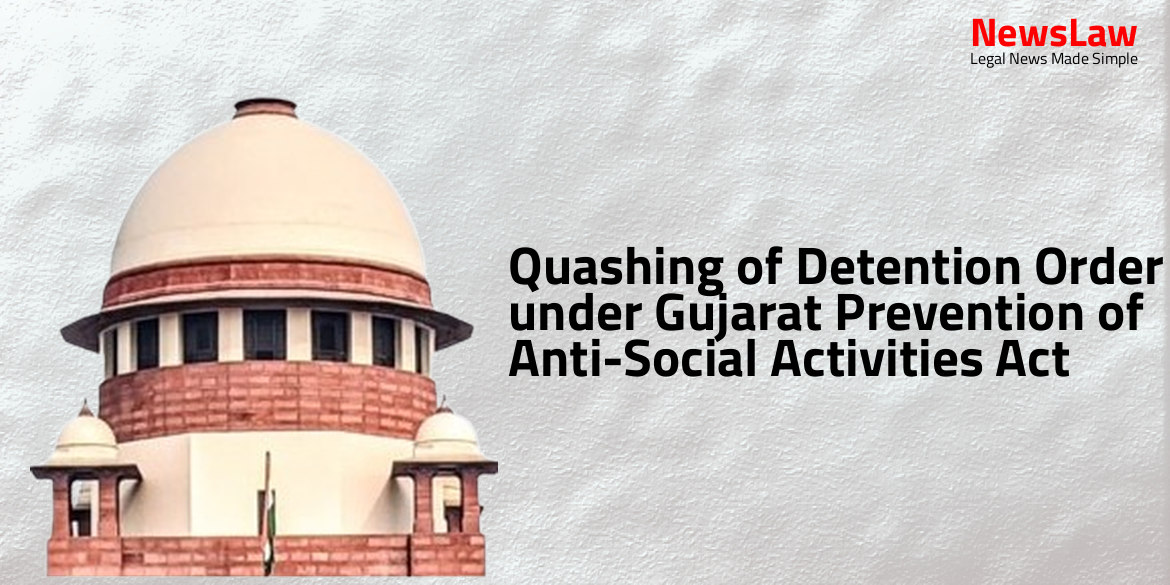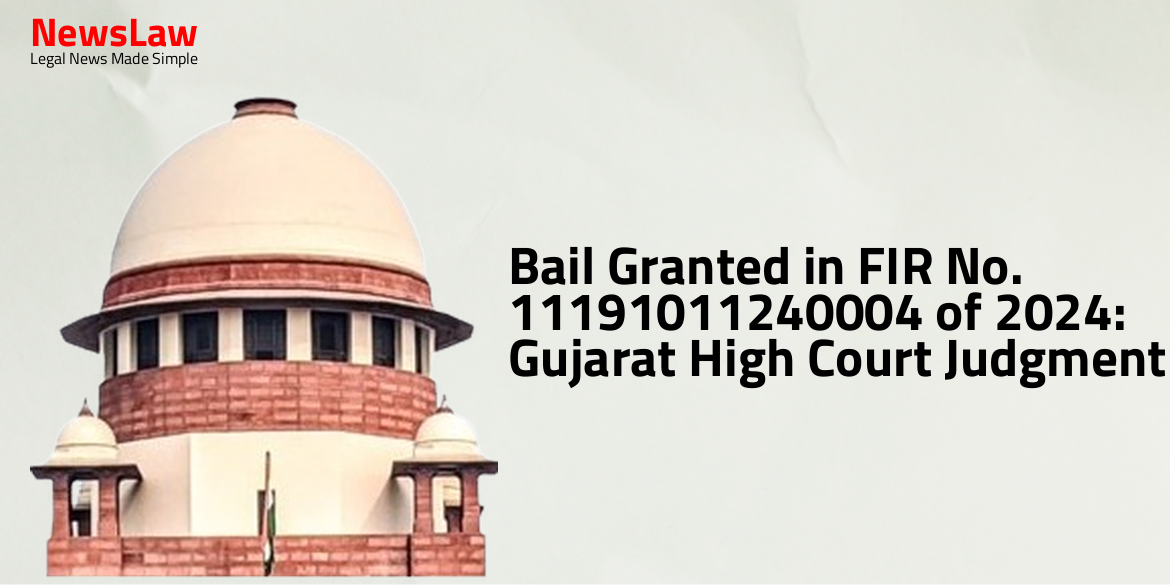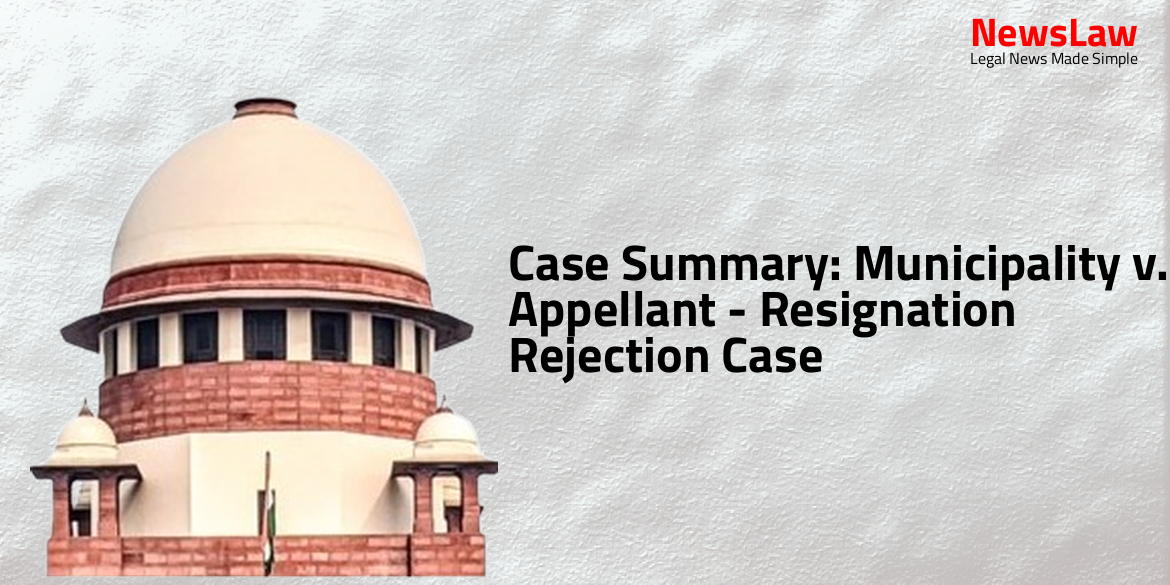In a groundbreaking ruling, the Gujarat High Court issued a judgment in a case involving allegations against a money lender for charging exorbitant interest rates. The court’s decision marks a crucial development in regulating money lending activities, emphasizing fair and lawful practices in the financial sector. Stay informed about this landmark legal precedent that addresses the issue of exploitative interest rates in money lending transactions.
Facts
- The applicant, Original Name, has filed the present petition seeking relief against the orders passed by the lower court.
- The court considered the submissions made by both parties and perused the relevant documents and case laws.
- After thorough examination, the court found merit in the contentions raised by Original Name regarding the applicability of the provisions of the relevant Act.
- The court held that the lower court had erred in its interpretation of the law and set aside the orders passed by them.
- Consequently, the court granted the relief sought by Original Name and directed the respondent to comply with the provisions of the Act as per the court’s interpretation.
- The court also provided specific directions to ensure the expeditious implementation of its order.
Arguments
- The applicant had a license for money lending but was charging interest at an exorbitant rate, despite being permitted to charge a reasonable rate.
- The deceased had borrowed Rs.4 Lakhs from the applicant, out of which Rs.1,50,000/- was towards the principal and Rs.2 Lakhs towards interest.
- The applicant was accused of torturing the deceased for the recovery of the remaining amount of Rs.2 Lakhs.
- The offenses charged are considered serious due to the nature of the allegations and facts presented.
- The advocate for the respondent State vehemently opposes bail, stating that no discretion is required given the severity of the charges.
Analysis
- Three main factors considered by the court are prima facie case, availability of Applicant accused during trial, and the risk of tampering with witnesses.
- The Applicant’s lawyer argued that the accused is not likely to flee.
- Considering the nature of the offence and the allegations, the court deems the application worthy of consideration.
- Applicant has been in custody since 06.04.2024.
- Referring to the law laid down in the case of Sanjay Chandra v. C.B.I. (2012) 1 SCC 40.
- The court, without delving into detailed evidence, finds it a fit case to grant bail.
- The applicant is ordered to be released on bail upon executing a bond of Rs.10,000/- with one surety of the like amount.
- Conditions include not influencing witnesses, maintaining law and order, providing address proof, contact numbers, and details of immovable properties.
- The applicant must inform the court of any changes in contact numbers promptly.
Decision
- The concerned Court has the authority to modify or relax the conditions as per the law
- The trial Court should not be influenced by the initial observations of this Court
- Direct service is permitted for necessary communication
- Release of the applicant is subject to not being required for any other offense at that time
- The Sessions Judge can issue a warrant if any condition is breached
- Bail bond must be executed at the lower court with jurisdiction over the case
- If the accused doesn’t have a passport, they must file an Affidavit to confirm
- The accused can’t leave India without prior permission of the Trial Court
- If possessing a passport, it must be surrendered to the Trial Court within a week
- The rule is made absolute to the stated extent
Case Title: DINESHBHAI VIRJIBHAI SOLANKI Vs. STATE OF GUJARAT
Case Number: R/CR.MA/8991/2024



